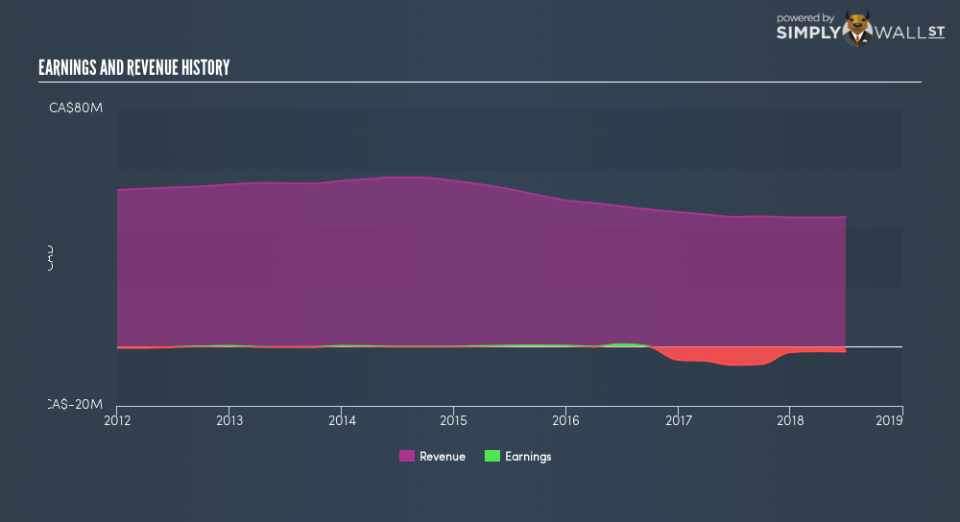Should You Be Concerned About Rocky Mountain Liquor Inc’s (CVE:RUM) Historical Volatility?

If you’re interested in Rocky Mountain Liquor Inc (CVE:RUM), then you might want to consider its beta (a measure of share price volatility) in order to understand how the stock could impact your portfolio. Volatility is considered to be a measure of risk in modern finance theory. Investors may think of volatility as falling into two main categories. The first type is company specific volatility. Investors use diversification across uncorrelated stocks to reduce this kind of price volatility across the portfolio. The second sort is caused by the natural volatility of markets, overall. For example, certain macroeconomic events will impact (virtually) all stocks on the market.
Some stocks are more sensitive to general market forces than others. Beta is a widely used metric to measure a stock’s exposure to market risk (volatility). Before we go on, it’s worth noting that Warren Buffett pointed out in his 2014 letter to shareholders that ‘volatility is far from synonymous with risk.’ Having said that, beta can still be rather useful. The first thing to understand about beta is that the beta of the overall market is one. A stock with a beta below one is either less volatile than the market, or more volatile but not corellated with the overall market. In comparison a stock with a beta of over one tends to be move in a similar direction to the market in the long term, but with greater changes in price.
See our latest analysis for Rocky Mountain Liquor
What we can learn from RUM’s beta value
As it happens, Rocky Mountain Liquor has a five year beta of 0.99. This is fairly close to 1, so the stock has historically shown a somewhat similar level of volatility as the market. While history does not always repeat, this may indicate that the stock price will continue to be exposed to market risk, albeit not overly so. Many would argue that beta is useful in position sizing, but fundamental metrics such as revenue and earnings are more important overall. You can see Rocky Mountain Liquor’s revenue and earnings in the image below.
How does RUM’s size impact its beta?
Rocky Mountain Liquor is a rather small company. It has a market capitalisation of CA$6m, which means it is probably under the radar of most investors. It doesn’t take much money to really move the share price of a company as small as this one. That makes it somewhat unusual that it has a beta value so close to the overall market.
What this means for you:
It is probable that there is a link between the share price of Rocky Mountain Liquor and the broader market, since it has a beta value quite close to one. However, long term investors are generally well served by looking past market volatility and focussing on the underlying development of the business. If that’s your game, metrics such as revenue, earnings and cash flow will be more useful. In order to fully understand whether RUM is a good investment for you, we also need to consider important company-specific fundamentals such as Rocky Mountain Liquor’s financial health and performance track record. I highly recommend you dive deeper by considering the following:
Financial Health: Are RUM’s operations financially sustainable? Balance sheets can be hard to analyze, which is why we’ve done it for you. Check out our financial health checks here.
Past Track Record: Has RUM been consistently performing well irrespective of the ups and downs in the market? Go into more detail in the past performance analysis and take a look at the free visual representations of RUM’s historicals for more clarity.
Other High-Performing Stocks: Are there other stocks that provide better prospects with proven track records? Explore our free list of these great stocks here.
To help readers see past the short term volatility of the financial market, we aim to bring you a long-term focused research analysis purely driven by fundamental data. Note that our analysis does not factor in the latest price-sensitive company announcements.
The author is an independent contributor and at the time of publication had no position in the stocks mentioned. For errors that warrant correction please contact the editor at editorial-team@simplywallst.com.

 Yahoo Finance
Yahoo Finance 
